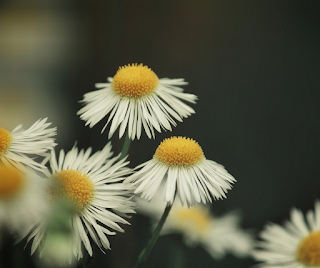The rose most commonly used to make essential oil is Rosa damascena, or the Damask Rose.
It can take up to 600 bushels, or up to 36,000 pounds! of rose petals to make 1 pound of rose oil. 😮 🌹 This is one of the reasons that pure rose essential oil is so expensive.
Luckily, there is also rose absolute oil. It still takes a lot of rose petals to make an absolute, but not as many. An absolute is made by solvent extraction. How solvent distraction works is the plant material is mashed up and mixed with some type of solvent, usually a chemical substance like hexane or benzene. These chemicals attract the essential oil out of the plant material. Then the oil and the chemical are separated.
While it's true that some of the solvent may still be left in the oil, many in the perfume industry and some aromatherapists like absolutes because they are less expensive and easier to obtain.
Rose essential oil is one of the highest vibrating essential oils, and it has many therapeutic benefits. One of the many benefits is it's healing affect on the skin. Rose is anti-inflammatory and anti-bacterial, as well as an astringent. It has healing qualities that are great for aging skin.
Another great benefit of rose oil is that it is a CNS sedative, so it is calming and soothing for the mind. You could try using rose essential oil in a bath, and get the benefits of both its stress relieving qualities and its skin healing attributes! Rose essential oil may also be helpful for balancing hormones during PMS and menopause. Instead of a warm bath, using it in a cooling mist may help soothe hot flashes.
Mesopotamian tablets reveal that the art of extracting perfume date from 3500 BCE. Boiling the petals in water was used to release the scent of the roses.
The use of wild roses was confirmed by the medical treatises of the founders of Ayurveda (an Indian system of medicine). Different rose species held unique medicinal properties, and each was allocated an original Sanskrit name that suggested its curative properties.
Rose hips are the fruit of the rose and contain its seeds. Rose hips are very high in Vitamin C. You can use them in cooking and medicinal remedies. You can often find rose hips made into a tasty tea.
The Romans were obsessed with roses. They celebrated the rose in art, gardens, banquets, rituals, architecture, and daily life. This huge obsession came with a high demand. Most Roman roses were grown in Egypt, along the Nile, and in the Middle East.
The Roman Emperor Heliogabalus (c. 203-222 CE) threw a feast to commemorate the start of his reign. He wanted it to be memorable, so at the feast he locked his guests in the banquet room and showered them three times with rose petals. The quantities of petals used was so overpowering that several people actually suffocated under their weight!
Just like the Greeks, the Romans used rose oil for numerous medicinal uses. The Roman Pliny, in 77 CE, recorded thirty-two different medicinal uses for roses. All parts of the flower were used for headaches, earaches, and issues with the mouth, gums, tonsils, stomach, rectum, and uterus.
Rose oil was an early cure for hangovers, as Pliny wrote that the crowns of roses would alleviate the "pain in the head" from wine with "very refreshing effect" (quoted in Potter, The Rose: A True History). Something to keep in mind the next time you have a party coming up!
The Romans weren't the only ones who used roses for medicinal purposes. Islamic medicine had also noted rose water and rose oil's benefits for the eyes, for relieving headaches, and for relieving diseases of the mouth and stomach. And the English botanist John Gerard wrote in his book; Herball, or Generall Historie of Plantes, that rose water and rose oil could help with eye issues, stomach issues, and internal inflammation, specifically constipation and fevers. And as I've already mentioned above, the founders of Ayurveda also recognized the important medicinal benefits of the rose.
Rose is the Oil of Divine Love
Rose oil is not only a powerful healer of the physical body. It is also a strong spiritual healer. As rose helps to heal the body, it also helps to heal the mind, as rose teaches the need for divine grace and intervention in the healing process.
The Rose is often associated with powerful female figures such as Venus, Isis, and Mary. These three women/goddesses are seen as healers, givers of life, nurturers, and the physical embodiment of love.
Rose is a supportive oil for the Heart Chakra. If you are feeling sad or depressed, massage a couple drops of rose oil over your heart and breathe deeply of the soothing, nourishing scent of the Rose.
Roses come in many different colors, and there is meaning in giving a certain color rose as a gift. Red roses signify passion and desire, pink roses are for love and romance. Yellow roses are for friendship, and white roses for sympathy and compassion. My personal favorites are the pink roses.


























